By Scott Thomas Anderson
On a recent morning in south Sacramento, all four people vying to be District 5’s next councilmember sat in front of an outdoor crowd. The political hopefuls mostly looked relaxed, though one of them – Chris Baker – had lately been dealing with a smoldering frustration. The Sacramento Bee had just run a story that didn’t even acknowledge it was a four-way race. The Bee’s report distilled the contest into a showdown between “homeless activist Caity Maple” and “neighborhood advocate Tamiko Heim.” Baker was stunned. Evidently, his years of mentoring troubled youth at juvenile hall, serving as a Sacramento commissioner on racial profiling, being on the stakeholder committee for the Department of Education and volunteering with the nonprofit Bridge Network, which helps at-risk kids, were all not enough to even merit a mention in the city’s paper of record. Similarly, candidate Kimberly Sow, a longtime health worker who has been navigating patients through the pandemic, was also on the receiving end of a total media black-out in the same story.
“What was that all about?” Baker quipped days later.
But this personality, who the teens at juvie refer to as “O.G. Preacher Man,” is even more annoyed that there haven’t been any real debates in the contest. While Baker was happy to attend the event that morning – a forum hosted by Sac Kids First and the Sacramento chapter of East Bay Asian Youth Center – it was ultimately just another gathering where the District 5 candidates weren’t allowed to engage each other.
In this case, they were told to keep all answers on a two-minute timeline and refrain from talking to, or about, each other.
“There haven’t been debates,” Baker notes bluntly.
And the O.G. preacher man is ready for a debate.
Baker says he wants to get in front of crowds and ask Tamiko Heim why she chose for her campaign manager a former City Hall insider, Joe Devlin, as well as about the implications of her support from outgoing councilman Jay Schenirer. Likewise, Baker wants to debate hard-charging Caity Maple in front of an audience, asking her blunt and direct questions about her time in the nonprofit sector. He also wants to know if she’d be the kind of leader who would holds nonprofits accountable for poor results and failures. Watching-dogging the City’s partnerships with nonprofits, particularly the cash flow from the former to the latter, is a major part of Baker’s campaign platform. He knows the City has received and spent hundreds of millions of dollars in grants on homelessness in the last five years; and yet, by all measures and indicators, the problem is worse than ever.
Baker sounded this note with confidence when he took the microphone that Saturday morning.
“I’ll be a hardcore council member,” his forceful voice boomed. “If you can’t show results, and if you don’t bring paper, you’re not getting a dime.”
His promise drew loud applause from the audience.
But Baker thinks he could get an even bigger response if he was cross-examining his opponents.
“I think a debate would enrich peoples’ understanding of the race and let them get an idea of who these candidates really are,” he argues.
Rise of the O.G. Preacher Man
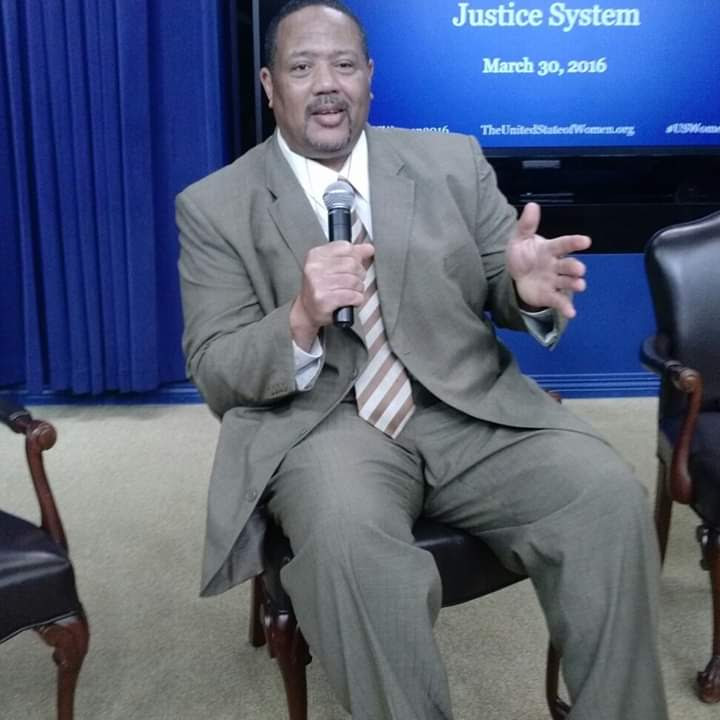
Baker grew up in the harder neighborhoods of San Francisco. He bounced around between foster homes for most of his childhood. He was an official ward of the court during his teenage years.
“I raised myself on the streets,” he says. “I was in and out of trouble then, until I finally had mentor who steered me in the right direction.”
Once on the straight and narrow, Baker got a job as a warehouse worker and then spent years employed in the automotive industry. His last nine years, before retiring, were in grocery and retail, where he wrapped things up as manager. Baker settled his life near Meadowview in South Sacramento, living in a zip code that would have been part of District 8 just four years ago. Until recently, Baker’s years of volunteering with different groups and serving on various commissions made him feel like he’d done his share, at least within the realm of politics. However, when he learned about how the District 5 race was unfolding, he changed his mind.
“I had said I was done with this, and that I was just going to concentrate on my education advocacy, but when I saw some of the of the folks who are running, I didn’t feel like I saw the sincerity,” Baker reflects. “We need someone who rolls up their sleeves and really works with the community.”
Because of his professional background, Baker is strong believer that healthy local businesses are key to neighborhood vitality. He doesn’t think the City and the County have done enough to support small businesses through the economic fallout of COVID. Baker says, if elected, righting that wrong would be a major focus.
Yet, his biggest goal is stopping the violence and addiction that keeps claiming children’s lives. Baker is sure he’s the only candidate who can walk into an apartment complex where gang members live and have a conversation with whomever he wants. More to the point, as a former foster youth and troublemaker, the O.G. Preacherman actually knows how to connect with kids who desperately need a new path.
“When I go to juvenile hall to talk to these at-risk kids, what I do is open up the conversation with who I am – and where I come from,” he explains. “I’ve lived the life, and I know what they’re going through. I tell them, ‘You all ask me some questions, and I won’t hold anything back.’ I tell them, ‘I was you, you and you.’ I tell them, ‘You don’t have to be a statistic because you live in an under-served zip code. You are somebody.’”
The hope of a hometown girl
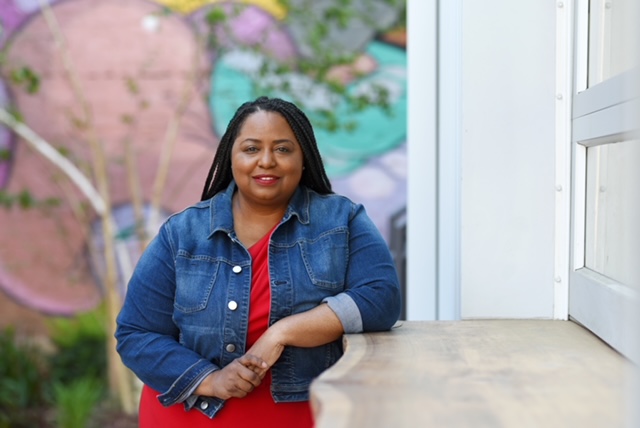
Tamiko Heim knows that hard work, careful coordination and community will-power can equal great things. She learned that lesson working on the Black Child Legacy Campaign, which was arguably one of the most successful and effective public-private partnership initiatives the region has seen in years. And the stakes around the campaign’s work could not have been higher. In the years leading up to 2017, County and City leaders had learned that – in seven different parts of Sacramento – African American infants and children were dying at twice the rate of other ethnicities. A multi-pronged investigation determined that the main factors were prenatal conditions, child abuse and neglect, sleep-related deaths and homicides.
The Black Child Legacy Campaign was the response to those revelations. It rallied local healthcare hubs, public service providers, nonprofit groups and church communities into a single, highly coordinated push against the tragedy. Heim was part of this fight from the very beginning – one of the first people SN&R spoke with as the campaign kicked off. She went on to work as a liaison between Ms. Jackie Rose at the Family Creative Empowerment Center and Sierra Health Foundation. Heim also helped evaluate the campaign’s vital community incubators – or resource hubs – as well as assisted in planning the first peace walk around murders that were happening at the time.
In the next few years, after the Black Child Legacy Campaign launched, African American child deaths plummeted in Sacramento County, and all child murders – at least for a time –went to zero.
Today, Heim looks back and notes that the access to prenatal care and other forms of health support were critical to that success.
“I think that was an amazing thing to put together,” she reflects. “So, for me to walk into a nonprofit and say, ‘Hey, I need some type of help and services, and all that I needed was right there, and available, and if I didn’t have to get on another bus, or spend more gas money trying to get to another place, to take care of my needs, I think it was a real driver for change. Because sometimes when people are down on their luck, they don’t know where to start.”
A 20-year state worker whose mother had a career at the Mather and McClellan Airforce bases, Heim first met Councilman Schenirer after she formed a neighborhood association for North City Farms, mainly to get safer crosswalks for the area. Schenirer ultimately asked Heim to serve as one of the city’s transportation commissioners, which she’s been doing for nearly four years now. She says that’s helped her understand how policy is made. But she also stresses that she has a broader vision for where community efforts need to go; and it shows in her off-hours. For example, she lights up when talking about being a board member for Sacramento Women Achieving Greatness, or SWAG.
“We partnered, at one point, with Planned Parenthood, to encourage women telling their stories,” she says.
Heim is also making library expansion in Oak Park a major element of her platform. Her daughter, Ariel Heim, recently graduated from Simmons University in Boston with a Master’s in Writing for Children and Children Literature. Heim says the countless hours she spent with Ariel at the Martin Luther King Jr Library on 24th Street played a major role in her daughter’s trajectory.
“Her love for reading came from that,” Heim notes. “So, a library is such an important focal point for a community. And it can really help, not just kids, but also those seniors who have trouble with the internet and need a way to connect.”
At the Saturday event, Heim seemed comfortable around its younger crowd. When she mentioned being a Hiram Johnson High Warrior, she got a burst of applause that was fitting for a hometown girl. Some of Maple’s supporters have criticized Heim for accepting $6,000 in campaign contributions from the Sacramento Police Officers Association; but Hiem says it’s young faces like the ones at the event that keep her focused on working toward better community policing.
“The reality is that we have police, right? So, I want the department and the people of the community to work together to keep the peace in the streets,” she explains. “The truth is, when it came to Black Child Legacy’s Campaign’s work on third-party homicide, we did do that. We went two years in the city with no child murders. That is definitely something we need to continue as we have real conversations about how to work with each other.”
From sleeping in a car to the Capital steps
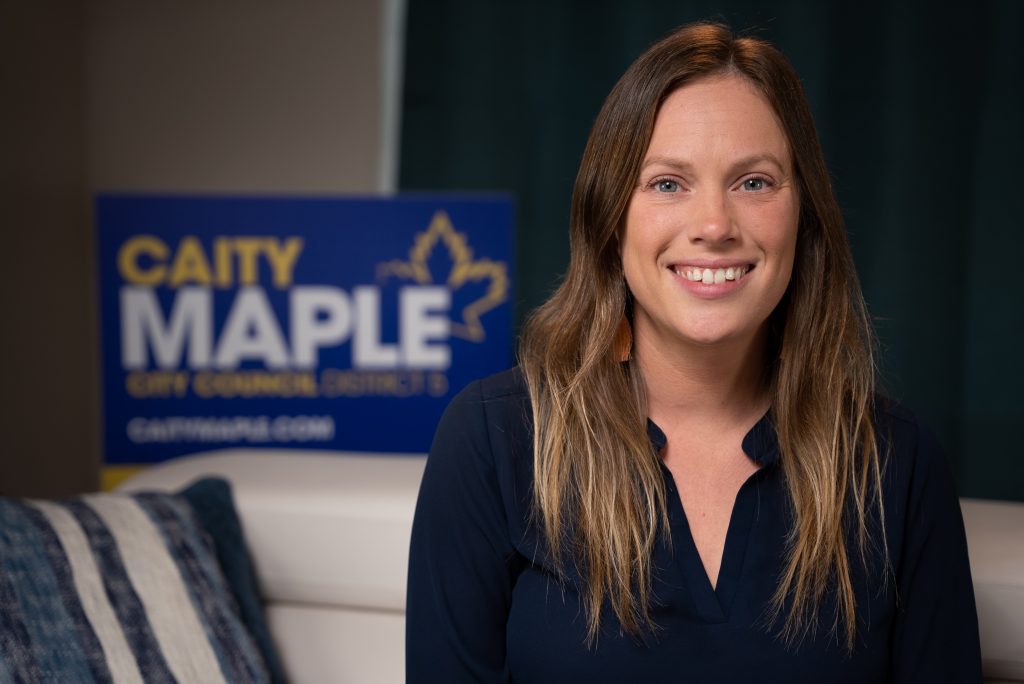
Chris Baker isn’t the only District 5 candidate who experienced turbulent teenage years. Caity Maple left home when she was 16 and was living inside her car as she worked as a waitress. She eventually managed to balance a fast-paced job with putting herself through college at U.C. Davis. After graduating, she went to work for the nonprofit California Forward, where she served as a researcher on issues of campaign finance reform, political redistricting and good governance. She ultimately became a legislative analyst for progressive nonprofits and then the legal cannabis industry.
In Maples’ off hours, she volunteered with homeless outreach, including with Solidary with Unhoused People, which put handwashing stations up all over the city during the onset of COVID. In fact, it was councilman Schenirer’s response to the pandemic that inspired Maple to run for his seat. At the time, she thought she’d probably be running against him. In November of 2020, Maple and other advocates for the unhoused were asking the City to allow those on the streets to shelter in unused buildings. Schenirer, at least as Maple remembers it, began openly fretting about how developers and property management companies would respond to that move. A 2018 analysis by SN&R of Schenirer’s campaign finance disclosures showed he has taken tens of thousands of dollars from those particular special interest groups.
Maple has been running a campaign for more than a year that isn’t taking money from any of those quarters. Like recent successful candidates Katie Valenzuela and Mai Vang, she’s running a Bernie-esque, small-dollar donation drive, with homelessness and the affordable housing crisis at the center of her platform.
“Unfortunately, there’s been a lot of influence on the Council from corporate interests and developers, and it really shows when you look around the city,” Maple says. “We had a ton of people die on our streets last year. We have people living below our underpasses, while the only thing that’s getting built is luxury condos. We have a massive, massive housing crisis, and we’re not investing in the affordable housing that we need. We can see a direct line between the lack of affordable housing and increasing homelessness.”
During the Saturday morning forum, Maple was the only candidate who went out of her way to engage all of the young people who were attending before the event actually got underway.
“I just wanted to get a chance to talk to you, before this starts and it becomes more of us talking at you,” she told the teens. “I’m interested in hearing what you think about how things are in the district.”
Maple doesn’t believe, if elected, she’ll end up going the way of some Sacramento-area politicians, who had up-from-scrap back stories yet ended up politically and financially allied with big developers. She says all it would take for her to stick to her guns is remembering those night living in her car.
“I was an unhoused youth, and I know the struggles that came along with literally trying to navigate the educational system, while navigating government systems, and that’s just really made me understand that, because of the way our system is set up for people to run for office and get elected to positions of power, it doesn’t necessarily allow people who are poor – or come from poor backgrounds – to access it,” Maples stresses. “You always have to remember where you come from … Campaign contributions are key. It’s about where I’m accepting money from, and where I’m not.”
A community for the next generation
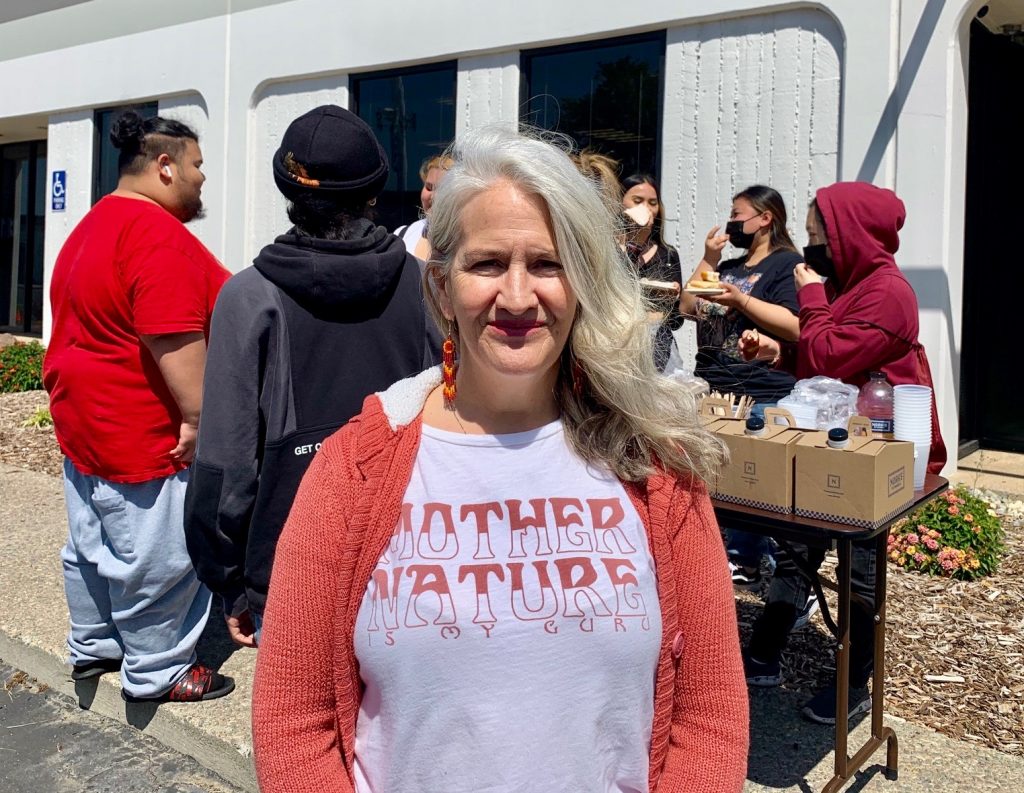
As the Saturday forum kicked off, the first teenager started making her way to the microphone. Reading from a prepared question, she began by telling the candidates that, “Many kids don’t feel safe at the parks because they’ve heard of kidnappings happening there,” and then she added “the bathrooms are always filthy and sometimes don’t even work.”
She wanted to know what the would-be councilmembers would do to make she and her friends feel safe and comfortable at the park again.
Kimberly Sow used this question to open a larger conversation on a topic that’s important to her campaign, which is investing in youth health and mental health. Sow referenced the toll the pandemic has taken on local students – with its lockdowns, school interruptions and forced isolation – and how that’s generally been a devastating factor. The data suggests she’s not wrong. In February of 2021, an online security company that works with public school districts across the nation revealed that its smart-learning software had detected an 83% increase in volume of threats of suicide and self-harm among students since the beginning of the pandemic. In March, the Centers for Disease Control released its own report, finding that “more than a third (37%) of high school students reported they experienced poor mental health during the COVID-19 pandemic, and 44% reported they persistently felt sad or hopeless during the past year.”
In the Sacramento-area, several teen suicides are suspected to have been influenced by the lockdowns of 2020.
“I’m very concerned about what’s going on with the mental health challenges of our youth today,” Sow says. “Depression is at a higher rate than ever before. Suicide rates are increasing. COVID-19 has created isolation. It’s interrupted the education and employment opportunities for our youth, and I think they just need a lot of resources right now, and a lot of support, because they’ve been put in a dark place.”
She adds, “Adults couldn’t even navigate this, so think about the pressure we ended up putting on our kids.”
Sow, whose day job involves scheduling patients to receive various health checkups including respiratory therapy support, also wants to find more ways to support and expand the arts in local schools.
The final part of her platform is decreasing gun violence.
“Gun violence has a tremendous impact on a community’s health,” she stresses. “I think we need a new system for tackling this issue, one that involves our schools, work places, health systems and faith-based groups. Everyone needs to be involved with this, so we can identify, de-escalate, plan and intervene.”
Asked about the recent snub in media coverage, Sow says it points to the political insider-class that’s cropped up in Sacramento.
“I thought it was unfair and biased – I think there’s four candidates in the race,” she remarks. “It’s about name recognition. I’m running because I really want to put people over profit again, because I feel like money is the deciding force in our politics, and we need to step away from that and understand the value of relationships between people.”

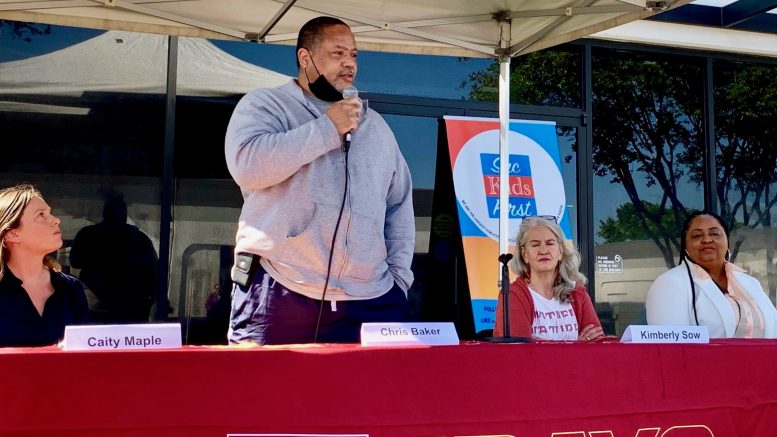
Be the first to comment on "The future of Sacramento’s District 5: a report on the entire race "